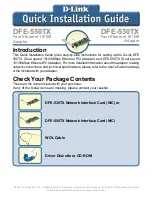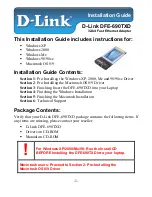
•
iSCSI initiator
(IP host)—A system that starts the exchange of information with an iSCSI target. IP
hosts access the iSCSI target storage systems as if they were directly attached.
iSCSI naming
iSCSI nodes are uniquely named devices (initiators or targets). The nodes have an IP address, TCP
port, and iSCSI name. The iSCSI name can be up to 255 characters in length.
Figure 126
shows an
iSCSI node definition in the context of an IP network.
25161a
IP Network = Network Entity
iSCSI Node (IP device with IP address)
iSCSI Name (up to 255 characters, using either EQN or EUI naming scheme)
Network Portal (IP address and TCP port number)
iSCSI Device (host or storage device)
iSCSI Node
iSCSI Node
Figure 126 iSCSI node definition
.
The iSCSI name is independent of the network portal and provides a unique and consistent identity
for an iSCSI node. Although moving a device to another network segment changes its network portal,
the iSCSI name is unchanged and allows the device to be rediscovered.
An iSCSI name is independent of supporting hardware. You can assign an iSCSI name to a device
driver on a host, even if the device driver accesses the network through multiple NICs. A storage
device with multiple connections to the network is also identified by its iSCSI name.
iSCSI naming provides permanent and unique identities for iSCSI nodes. The two naming schemes
are as follows:
•
IQN
•
EUI
An iSCSI node address consists of the IP address, TCP port number, and IQN or EUI. iSCSI nodes
acquire IP addresses with standard IP services.
Discovery mechanisms
This section describes the mechanisms you can use for discovery requests.
Static configuration
With static configuration, an administrator manually sets the target addresses for the initiators. The
statically configured addresses for the targets persist across initiator reboots. Static configuration is
recommended for the smallest iSCSI SANs.
SAN Design Reference Guide
357
Summary of Contents for StorageWorks 4000/6000/8000 - Enterprise Virtual Arrays
Page 26: ......
Page 34: ...SAN design overview 34 ...
Page 60: ...SAN fabric topologies 60 ...
Page 80: ...Fibre Channel routing 80 ...
Page 82: ......
Page 92: ...H series switches and fabric rules 92 ...
Page 156: ...C series switches and fabric rules 156 ...
Page 182: ...SAN fabric connectivity and switch interoperability rules 182 ...
Page 184: ......
Page 270: ...XP and VA storage system rules 270 ...
Page 276: ...Enterprise Backup Solution 276 ...
Page 278: ......
Page 354: ...SAN extension 354 ...
Page 398: ...Network Attached Storage 398 ...
Page 400: ......
Page 416: ...Storage security 416 ...
Page 428: ...Best practices 428 ...
Page 456: ...456 ...
















































